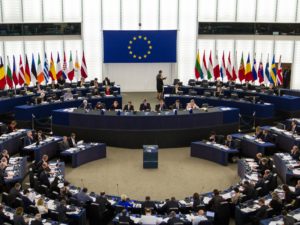FOUNDING DECLARATION
KEY PRINCIPLES
- Effective competition at national and European level is key to guarantee a well-functioning energy market and benefits the customer
- Effective unbundling guarantees that natural monopolistic activities do not endanger competition
- Markets’ liquidity is essential for well-functioning markets: it fosters transparency and enables hedging
- All electricity generation, storage and demand should access all organized markets and balancing services on equal footing according to their performances
- Energy bills should not include any non-energy related items
- The energy sector must be compliant with decarbonisation goals
- European integration of energy markets must be completed
- Network tariffs should set the right incentives to choose the most efficient solutionsfor the energy system
- Active customers are key to fulfill all EER principles
- Lack of unbundling (of ownership, operations and brand) between regulated monopolistic activities and competitive activities harms competition, due to:
- Undue informative advantages
- Exploitation of monopolistic prerogatives in market-based activities
- Opportunity of unfair competitive practices due to cross-subsidies with monopolistic activities
- Unfair extension of regulated monopolies to areas where competition can be successful (e.g.: metering, smart consumption devices)
- Lack of access to customer data, including incomplete third party access to data and metering facilities
- Uneven development of electricity and gas markets
To fulfill its principles EER aims at achieving an active role of the retailer and other solution providers as a:
- Promoter of competition
- Adviser to the customers
- Enabler of customers’ access to the markets (even the complex ones)
- Provider of risk mitigation services
- Provider of new and innovative products & services
This challenge needs an adequate regulatory framework.

In terms of European extension:
- More Interconnections within and between MEMBER STATES are necessary to benefit European citizens and industries and take advantage of harmonized energy prices and equal competition.
- Integrated operation of the energy grids requires cooperation between TSOs based on European network codes.
- To achieve market integration there is a need of:
- Harmonized wholesale procedures on finance and clearing house conditions in all EU MEMBER STATES
- Harmonized retail framework and procedures, including for example contract and tax law, consumer protection, data management
- Creation of a common European retailer “Passport”: If a retailer is registered and authorized in one MEMBER STATE, he should be able to provide energy and services to customers in all European MEMBER STATES.

In terms of major market design features:
- Energy only markets, provided they are efficient, can deliver the operators all the remuneration they need. Though, if capacity markets are introduced, they should not discriminate in terms of technology (including generation, storage and demand response). They should take interconnections between countries into account and they should deliver a clear incentive to decarbonization.
- TSOs, regulators, exchanges, authorities and others shall apply fair and reasonable charges for their services in order to not distort competition.
- Spot and long term markets need liquidity. Liquidity is eased by:
- Transparent and non-discriminatory balancing market rules
- Existence of well-functioning term markets aimed at exchanging hedging products
- Admission of demand response service providers (independent aggregators) to all markets under fair and reasonable conditions in relation to other players.
- Electricity markets need liquid and efficient natural gas markets.
- Framework conditions need to be such that dynamic pricing offers are possible.
- Competition on metering should be possible, provided that formal and metrological requirements are fulfilled.
- Harmonized timelines and switching processes between electricity and gas are essential for retailers to offer dual products under equal conditions to incumbents.

In terms of energy efficiency:
- Promotion of energy efficiency should not be based on market distorting mechanisms (> taxes & charges).
- Efficiency policies as a win-win for all participants. Retailers may be granted with market mechanisms to reduce their contributions to national Efficiency Funds.

In terms of relation with the customers:
- Only market-based parties, including suppliers, independent aggregators and other energy solution providers should have direct contact with the customer.
- Too detailed regulation on customer protection and billing prevents innovation – e.g. prohibition of advanced billing prevents the introduction of prepaid cards.
- Energy poverty should be addressed by social policy

In terms of data access:
- Non-discriminatory, timely and efficient access to smart meters data should be ensured (including the load curve) to all market parties that need the respective information for fulfilling their contractual and regulated duties. Equal access to data for retailers and 3rd party service providers shall be granted.
- Data protection principles may not limit or restrict access for retailers and 3rd party service providers to energy consumption and other smart meter-related data that is needed by those market parties to fulfill their contractual and regulated duties. Such limitations can neither be accepted for private consumers, nor for commercial or industrial consumers.
- Smart meters should be able to provide data through interaction with different technologies (Wireless; PLC; GPRS).
- A minimum set of meter functions need to be defined by regulation (standardized functions are needed).

In terms of renewable energy sources (RES):
- Support to RES should be provided through market-based systems.
- RES participation in ancillary services should be on equal footing with respect to conventional technologies.
- Prosumers should be allowed to sell their surplus.
- Self-consumption should be an option available to prosumers, not an imposed category due to connection infrastructures.
Download our official founding declaration: 2017_EER_Founding Declaration and Key Principles

